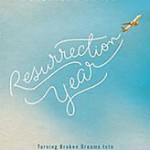 Last week, I gave Christian Piatt a hard time. Why? Because I thought he oversimplified the world of Jesus. As Christian put it, in his typically vivid way, Jesus offered salvation, but “not in the way they [the Jews] had expected. They longed for a conqueror to ride in, kick ass, and take names, but instead he arrived as the Suffering Servant” (page 47).
Last week, I gave Christian Piatt a hard time. Why? Because I thought he oversimplified the world of Jesus. As Christian put it, in his typically vivid way, Jesus offered salvation, but “not in the way they [the Jews] had expected. They longed for a conqueror to ride in, kick ass, and take names, but instead he arrived as the Suffering Servant” (page 47).
The Jews wanted a “kick ass” messiah, but Jesus came as a suffering servant.
This isn’t true.
If this isn’t true, then what is? Well, exactly the opposite: Jesus perfectly fulfilled Jewish expectations.
But how can we know what the Jews of Jesus’ day expected? For starters, from scrolls that a Bedouin boy, and others after him, found in caves near the Dead Sea. In one of these scrolls, aptly named the Messianic Apocalypse, you can read (ignoring the brackets, which represent gaps you’d expect in 2,000 year old scrolls):
[for the heav]ens and the earth will listen to his anointed one (messiah) … For he (the Lord) will honor the pious upon the throne of an eternal kingdom, freeing prisoners, giving sight to the blind, straightening out the twis[ted.] … And the Lord will perform marvelous acts such as have not existed, just as he sa[id,] [for] he will heal the badly wounded and will make the dead live, he will proclaim good news to the poor … and enrich the hungry.
Glance at this scroll, and you’ll see exactly what some Jews expected of the coming messiah (the anointed one). He would renew the faithful, free prisoners, give sight to the blind, and straighten the twisted. He would heal the wounded, raise the dead, preach good news to the poor, and feed the hungry.
These expectations are a blend of passages from the biblical book of Isaiah. In Isaiah 35:5-6, for instance, God will cause the blind to see, the lame to walk, and the deaf to hear. In Isaiah 61:1-3, an inspired prophet will bring good news to the poor, healing to the brokenhearted, release to prisoners, and comfort to mourners.
It’s hardly a leap from Isaiah to Jesus, who based his first sermon, in his hometown of Nazareth, on Isaiah 61—and said, in no uncertain terms, that this passage was about to come true.
Wait a second! If we can leap from Isaiah to Jesus, then who needs the Dead Sea Scrolls? Why bother reading what Jews in Jesus’ day wrote? Why not read just the Old Testament and the New?
Because a Jewish scroll like the Messianic Apocalypse contains a significant detail which Isaiah doesn’t. To understand its importance, let’s return to Luke’s gospel.
There comes a point in Jesus’ life when his cousin John the Baptist is in prison. Disillusioned, John sends his disciples to ask Jesus, “Are you the one who is to come, or are we to wait for another?”
Jesus doesn’t chide his cousin, but he does answer clinically: “Go and tell John what you have seen and heard: the blind receive their sight, the lame walk, the lepers are cleansed, the deaf hear, the dead are raised, the poor have good news brought to them” (Luke 7:21-22). All of this sounds vaguely familiar from the book of Isaiah: the blind see, the lame walk, lepers are healed, the deaf hear, the poor get good news.
Strangely familiar except for one thing: the dead are raised. This doesn’t come from Isaiah. It does come from that little fragment of scroll, the Messianic Apocalypse, which tells us what Jews—at least some Jews—expected: that their messiah would raise the dead.
That is exactly what Jesus did. Right before John’s disciples asked Jesus whether he was the one or not, Jesus had raised the dead son of a widow.
It would be a grave (nice pun, huh?) mistake to leap frog over the Jewish literature that framed the world of Jesus. Coupled with the Messianic Apocalypse, Jesus’ response to his beleaguered cousin tells us that his works and words directly fulfilled what at least some Jews, including John the Baptist, hoped for in his day.















